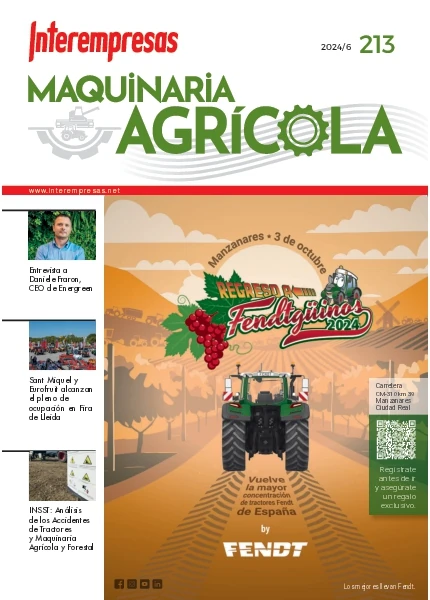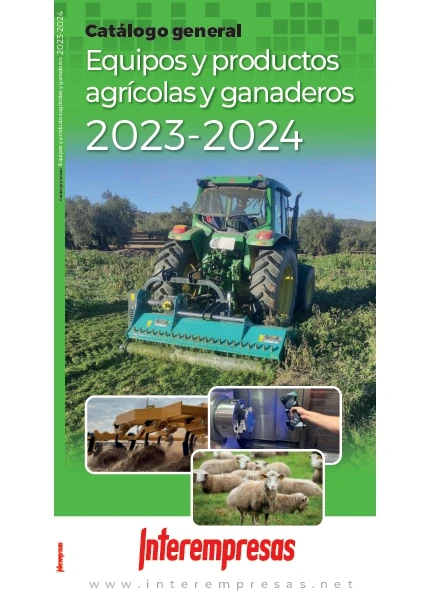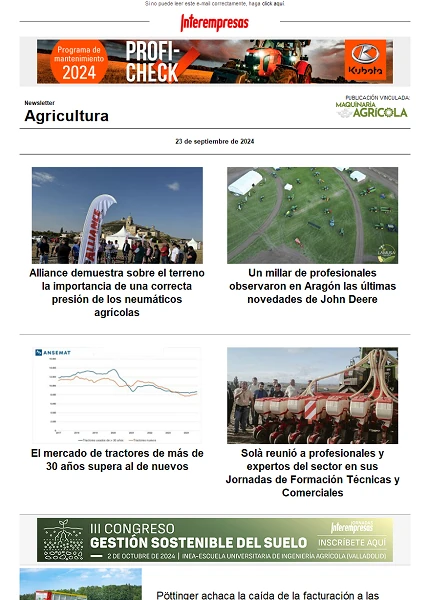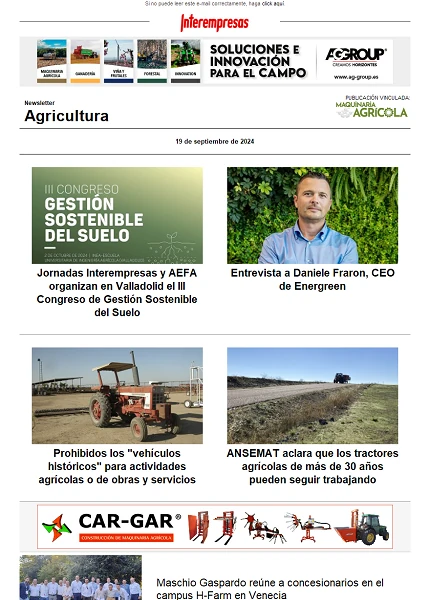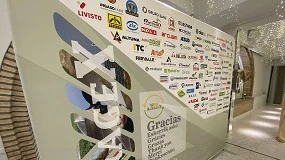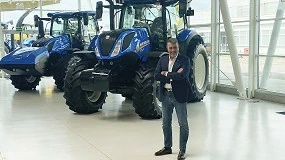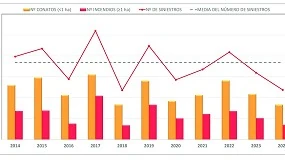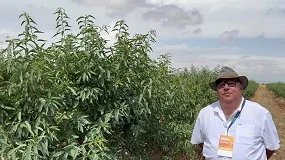Protección solar para invernaderos
30 de agosto de 2010
Tras seis años de investigación, BASF lanzará en la feria K un nuevo estabilizador de la luz que es capaz de mejorar los invernaderos y de hacerlos más efectivos: Tinuvin XT 200 protege las películas fabricadas con resinas termo-plásticas contra la rápida degradación general que sufren cuando se exponen a los rayos ultravioleta. Este económico aditivo garantiza la eficacia de las películas durante un periodo más prolongado, incluso cuando existen serias concentraciones de agentes químicos agrícolas, como el azufre elemental. Así, Tinuvin XT 200 rellena el vacío que existía en la cartera de BASF de estabilizadores de la luz para resinas que se utilizan en el sector agrícola.
Un mercado importante en muchos aspectos
Como consecuencia del desarrollo urbanístico, y también debido al incremento de la erosión y al cambio climático, la superficie de terreno cultivable se ha ido reduciendo. Actualmente, el desafío consiste en intensificar la actividad agrícola y a su vez, mantener unos precios de producto asequibles. Los invernaderos pueden construirse sin necesidad de grandes costes mediante el empleo de películas plásticas y son una de las posibles soluciones a este problema. Ofrecen un entorno ideal para las plantas, protegen las verduras de los efectos de las heladas, del viento y de la lluvia, y garantizan una alta calidad uniforme, además de contribuir a la maduración más rápida de la fruta, lo que permite realizar varias cosechas en un año. Por otra parte, la película plástica actual se puede adaptar a la medida específica de los requisitos individuales de luz y de temperatura de muchas frutas cultivadas en el campo. Al mismo tiempo, contribuye a reducir el consumo de agua, un recurso que deberá cuidarse cada vez más en años venideros.
Las ventajas de la producción en invernadero son tan convincentes que verduras como los tomates, los pimientos, los pepinos y las berenjenas ya se cultivan bajo techos de poliolefina. En 2009, la producción mundial de películas termoplásticas para invernaderos ascendió a cerca de 900.000 toneladas y ocupó una superficie de terreno cultivable de 800.000 hectáreas –superficie que equivale, aproximadamente, a la suma de las extensiones que ocupan las ciudades de Tokio, México D.F., Madrid, Johannesburgo, Roma, Moscú y Berlín– Al mismo tiempo, se prevé que la demanda de películas para la agricultura que se utilizan en invernaderos aumente a un índice anual aproximado del 4%. Los mercados más importantes se encuentran en la zona mediterránea. Otras zonas de crecimiento rápido de la demanda de invernaderos a nivel mundial son Asia, Sudamérica y el este de África.
La agricultura exige unos requisitos especiales
La agricultura optimizada también incluye el empleo de agentes químicos cuidadosamente seleccionados, para evitar que las plagas y el moho ataquen las cosechas. En este campo, también se están logrando grandes progresos en soluciones respetuosas con el medio ambiente. La utilización del azufre por ejemplo, cuya aplicación en los productos orgánicos ha sido aprobada incluso en agriculturas altamente reguladas como la alemana, está experimentando un crecimiento digno de mención. Sin embargo, la utilización del azufre elemental y de otros agentes químicos en la agricultura exige que las películas de uso agrícola que se utilizan en los invernaderos reúnan unas características especiales.
La razón radica en la sensibilidad de las películas termoplásticas a la luz UV. Esta radiación, rica en energía, provoca que los plásticos se vuelvan quebradizos con el tiempo, por causa de un complejo proceso químico de pasos múltiples. Debido a ello las películas de bajo coste, en particular las más finas, pueden resultar inútiles tras apenas algunas semanas de exposición a condiciones de cielo abierto. Naturalmente, la química de polímeros ya ha desarrollado aditivos que pueden ralentizar esta reacción de degradación. Sin embargo, su idoneidad de empleo en películas de uso agrícola es bastante limitada, ya que su efectividad se reduce de forma considerable bajo el efecto de los azufres y ácidos que emanan de las construcciones de madera o hierro de los invernaderos. Los agentes químicos que contienen halógeno también contribuyen a la desactivación de los estabilizadores comunes de rayos UV.
Productos resistentes a los agentes químicos
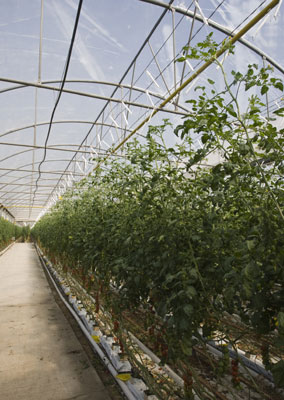
No obstante, ya existen alternativas en la cartera de estabilizadores de la luz de BASF específicamente desarrollados para el sector agrícola. Los estabilizadores de la luz recomendados en virtud de la cantidad de agentes químicos para la agricultura que se utilicen son, por ejemplo: Tinuvin NOR 371, un potente producto de alta gama disponible en el mercado desde 2001; Tinuvin 494 y Tinuvin 111, así como Chimassorb 2020 y 944. El nuevo Tinuvin XT 200 se emplea en campos en los que, por razones técnicas, no pueden abastecerse utilizando Tinuvin 494, o que por razones económicas no puede abastecerse con Tinuvin NOR 371. De esta forma, se ha cubierto el vacío existente en la línea de aditivos de BASF.
Producción económica garantizada
La utilización de Tinuvin XT 200 permite producir de manera muy económica películas de LDPE (polietileno de baja densidad) que resisten altos niveles de agentes químicos de uso agrícola y que a la vez garantizan una vida de servicio de dos o más años, incluso en condiciones de luz solar intensa. El rendimiento de estas películas estabilizadas es también muy bueno cuando entran en contacto con las estructuras de madera y metal de los invernaderos. Sin un estabilizador de la luz, no durarían ni un ciclo de cultivo.
Las propiedades del nuevo estabilizador de rayos UV se han puesto a prueba durante años, mediante ensayos exhaustivos en Ciba/BASF. Estos ensayos se han realizado no solo en laboratorios altamente especializados, sino también en los invernaderos experimentales del gran centro de desarrollo de estabilizadores de la luz para uso agrícola de BASF en Bolonia (Italia).
Tras la investigación detallada en el laboratorio de las características de envejecimiento de la película estabilizada, también se ha comprobado su rendimiento en ensayos exhaustivos de campo en Italia y en España. Ahora el nuevo estabilizador tiene la oportunidad de crecer al ritmo de un dinámico mercado.


